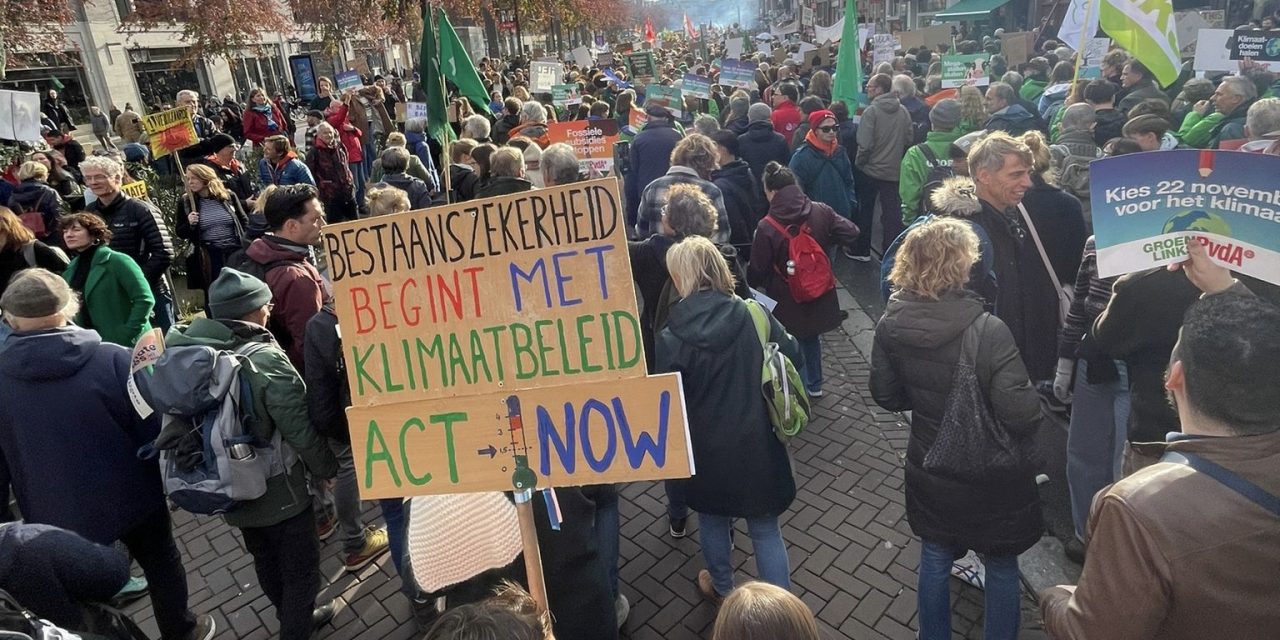Climate stress is a concept that has developed among young people around the world in recent years. Market agency Ipsos conducted a global study on climate stress among young people on behave of the Dutch environmental organization Milieudefensie. Also, Ipsos did research with Belgium organization Good Planet. They concluded that 48% of the young people in Belgium have negative feelings towards the climate change and feel anxieties towards it. Worldwide, one in five young people globally feel stressed about the climate change.
Climate stress is a development that has grown the last five years. When someone is experiencing climate stress that person can feel negative emotions. Which can have an impact on the mental state. “It is very important to recognize the feelings involved and to take them into account. This concerns feelings of fear, despondency, and powerlessness, which are often linked to the subject of climate. If you walk around with this for too long, physical complaints can even occur”, says climate psychologists Marian Zandbergen. Climate stress has not only mental and psychical consequences but can also change a person’s behavior. This phenomenon is called climate ambivalence in the psychological world. This refers to experiencing conflicting thoughts and feelings regarding climate-unfriendly behavior. Climate ambivalence can emerge to climate stress after these conflicting thoughts”, says Marije van Gent, climate psychology lecturer at The University of Applied Sciences in Amsterdam and researcher about climate ambivalence.
“Young people want to contribute, but recent studies show that they do not know how. This gives young people a discouraged feeling and can indeed lead to mental complaints and a hopeless feeling about the future,” says researcher and PhD student at the Catholic University of Leuven (KU) Jeroen Barrez. In Belgium, the Bubble Brussels organization has set up the Cascade project. Where they give young people useful tips to commit to the climate and help them to demonstrate more climate-conscious behavior. “This project started after our organization noticed that many young people experienced climate stress and wanted to work for the climate but did not know where to start. So, that’s where we came in the picture. In this group they work together with extracurricular organizations to tackle environmental problems within their own environment.”, says Roxanne Keunings, promotion manager of the education department. The climate stress and ambivalence that many experience today can be attributed to our current society and the structures which we live in. “The society is more individualized, where you must do a lot to make changes. When an individual is repeatedly told that they must live a more climate-consciously life, we also become increasingly aware of our contradictory behavior. It helps to focus on small parts and try to make a difference as little as you’re able to”, says Marian Zandbergen.
Last September six young Portuguese people between the age of 11 and 24 years-old, took all the European countries to court. Also, countries such as Russia, United Kingdom, Switzerland, Norway, Turkey, and Ukraine were sued. These countries have violated the human rights according to these six victims by not complying with the Climate Agreements. In their eyes the European governments of member states do not take the climate problems, such as forest fires in account in the Southern part of Europe. In 2021 Europe has emitted 5% more CO2 than agreed. This put the set-up climate goals in doubt. “This lawsuit can be seen as a consequence of climate stress”, says Zandbergen.
Both climate psychologists suggest that an excess of negative information can result in climate stress, which is not conducive to motivation and does not encourage behavioral change. They emphasize that an overwhelming focus on negativity can be demotivating. However, when accompanied by a ray of hope for the future, this, when combined with the negative realities of the world, serves as an ideal motivator, leading to increased action, as seen in the example of the six Portuguese youngsters.
In the podcast below you can listen to a more in-depth interview about climate stress.




